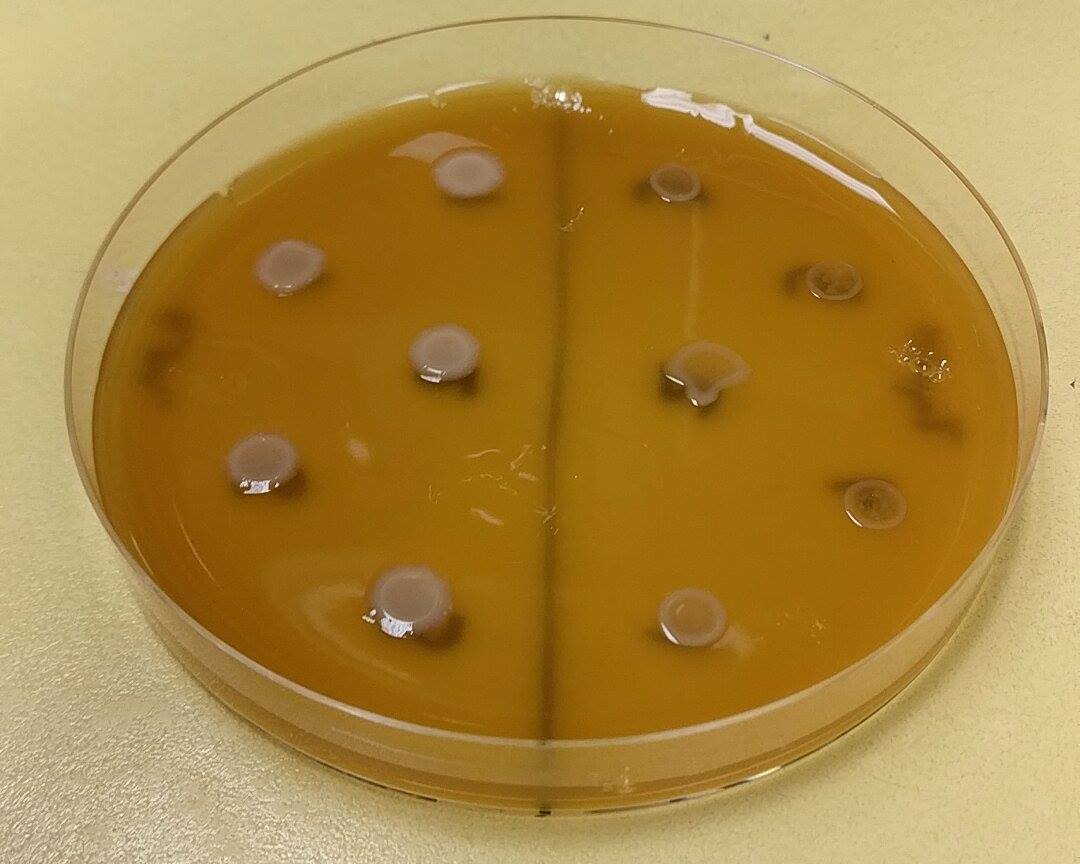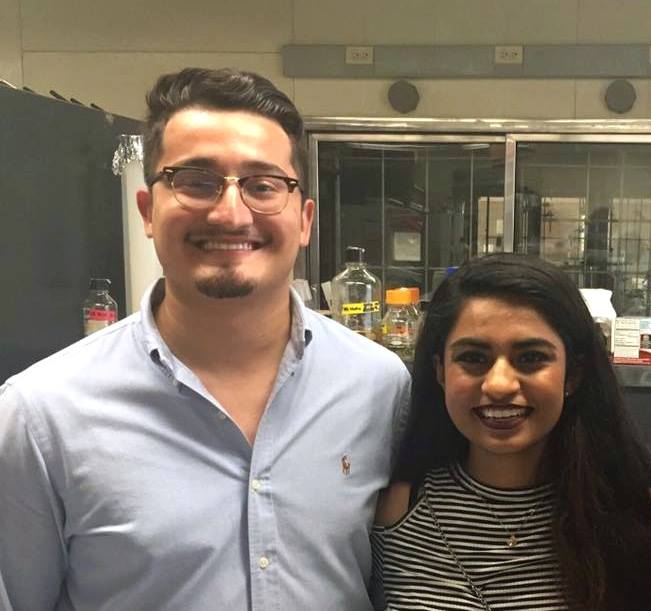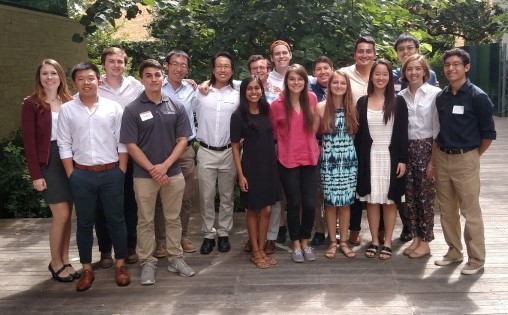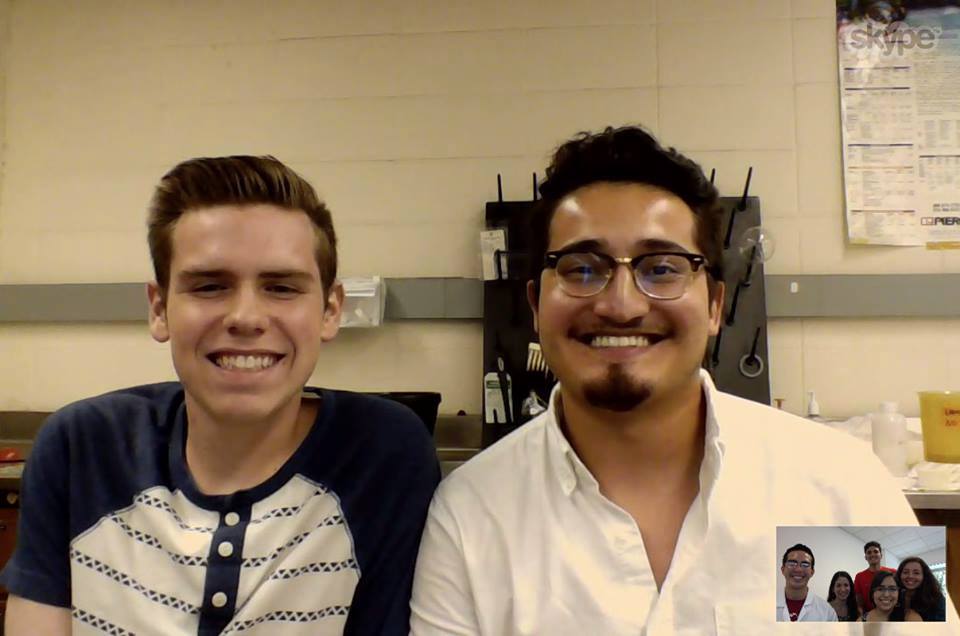Stratton g (Talk | contribs) |
Gracetexana (Talk | contribs) |
||
| Line 29: | Line 29: | ||
<html> | <html> | ||
| − | <p> As scientists, synthetic biologists rely on collaboration to develop their ideas. Recognizing the value of feedback from our peer iGEM teams, we reached out to teams from Texas Tech Lubbock, Rice, and Monterrey to see whether they would be interested in organizing a meeting before the jamboree. On Saturday, September 24th, 2016, at the University of Texas Fall Undergraduate Research Symposium, iGEM teams from Rice University, Texas Tech University, and the University of Texas met to discuss their projects and exchange feedback and advice for the competition. As a part of the Natural Science Undergraduate Research Symposium, each team first formally presented a part of their project to an audience of professors, graduate students, as well as undergraduate students. Following this formal presentation was an informal meeting of the teams to strictly focus on each of our iGEM projects. During this collaborative discussion, the teams critiqued each other’s projects. Multiple members of each team organized the meetup via email, phone, and Facebook. Teams enjoyed an early opportunity to discuss their projects with other students enthusiastic about synthetic biology. </p> | + | <p> As scientists, synthetic biologists rely on collaboration to develop their ideas. Recognizing the value of feedback from our peer iGEM teams, we reached out to teams from Texas Tech Lubbock, Rice, and Monterrey to see whether they would be interested in organizing a meeting before the jamboree. On Saturday, September 24th, 2016, at the University of Texas Fall Undergraduate Research Symposium, iGEM teams from Rice University, Texas Tech University, and the University of Texas met to discuss their projects and exchange feedback and advice for the competition. As a part of the Natural Science Undergraduate Research Symposium, each team first formally presented a part of their project to an audience of professors, graduate students, as well as undergraduate students. Following this formal presentation was an informal meeting of the teams to strictly focus on each of our iGEM projects. During this collaborative discussion, the teams critiqued each other’s projects. Multiple members of each team organized the meetup via email, phone, and Facebook. Teams enjoyed an early opportunity to discuss their projects with other students enthusiastic about synthetic biology. </p> |
| + | <br> | ||
</div> | </div> | ||
Revision as of 23:00, 18 October 2016
Austin_UTexas
Collaborations
Texas Tech Collaboration
To fulfill the gold medal requirement, the UT Austin team mentored the first year Texas Tech team. The Texas Tech Collaboration page can be found here.
In the collaborative spirit of iGEM, the UT Austin iGEM team reached out to several other teams. Through this outreach, we began communicating with the Texas Tech team. As a new iGEM team participating in the competition for the first time, Texas Tech had several questions about the competition that we attempted to answer during the summer and fall.
During this time, members of the Texas Tech team has visited Austin three times. An initial meeting took place between two team representatives to discuss the teams’ projects during the summer. Brandon Palomo of Texas Tech agreed to attempt to replicate Jenna McGuffey’s and Erum Dhanji's results with gellan gum plates [LINK TO OUR PAGE? LINK TO THEIR PAGE?]. At this same meeting, Katelyn Corley of UT Austin helped to answer many of Tech’s questions regarding language in the iGEM rules and classification for iGEM medals. Corley and Palomo exchanged contact information so the teams could continue to collaborate electronically. In the second meeting, Marilyn Mathew of Texas Tech, originally from Austin, visited our undergraduate research lab to pick up fluorescent bacteria that Texas Tech wished to use for a public workshop relating to community awareness of synthetic biology. These bacteria were originally created by members of the UT Austin iGEM 2015 team [LINK] and have been in continual use by the UT Austin iGEM teams since then. Members of each team met for a third time at the Texas iGEM meetup at UT Austin in September. This meetup occurred as part of the University of Texas at Austin Undergraduate Research Symposium. During the third meetup, we provided Texas Tech with the Sphingomonas paucimobilis bacteria required to make gellan gum plates and answered additional questions about the competition, deadlines, trip details, and medal and wiki requirements. We believe we have provided the Texas Tech team with mentorship throughout the course of the summer and fall that should help them be competitive in their first iGEM jamboree. Texas Tech in turn helped our team by testing our team's protocol for creating gellan gum plates with S. paucimobilis.
Texas iGEM Meet Up
As scientists, synthetic biologists rely on collaboration to develop their ideas. Recognizing the value of feedback from our peer iGEM teams, we reached out to teams from Texas Tech Lubbock, Rice, and Monterrey to see whether they would be interested in organizing a meeting before the jamboree. On Saturday, September 24th, 2016, at the University of Texas Fall Undergraduate Research Symposium, iGEM teams from Rice University, Texas Tech University, and the University of Texas met to discuss their projects and exchange feedback and advice for the competition. As a part of the Natural Science Undergraduate Research Symposium, each team first formally presented a part of their project to an audience of professors, graduate students, as well as undergraduate students. Following this formal presentation was an informal meeting of the teams to strictly focus on each of our iGEM projects. During this collaborative discussion, the teams critiqued each other’s projects. Multiple members of each team organized the meetup via email, phone, and Facebook. Teams enjoyed an early opportunity to discuss their projects with other students enthusiastic about synthetic biology.
Monterrey Collaboration
The iGEM team from Monterrey, Mexico also reached out to our team as we are their closest iGEM neighbor. UT Austin helped the Monterrey team troubleshoot their conjugation protocol. The Monterrey team also discussed trying to attend the Texas iGEM meetup, but were unable to make the September meetup. The teams also discussed helping each other out experimentally, but given the international border, there were some uncertainties on how best to send biological organisms and other materials. Unfortunately, nothing was sent.





